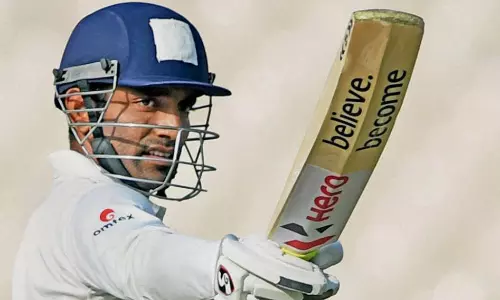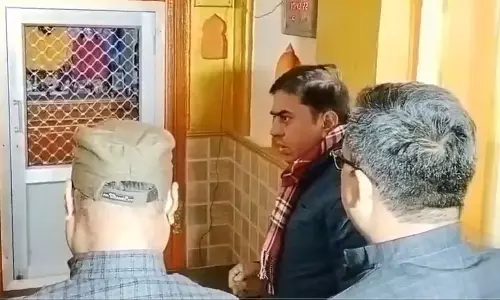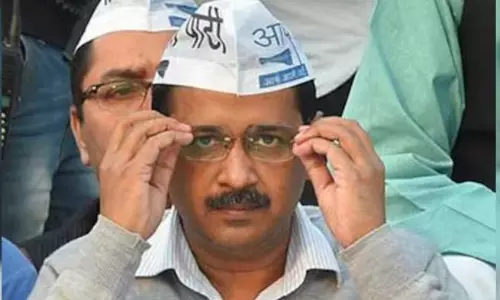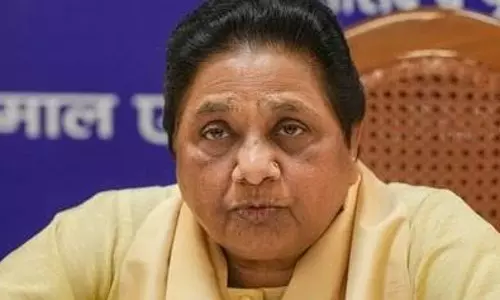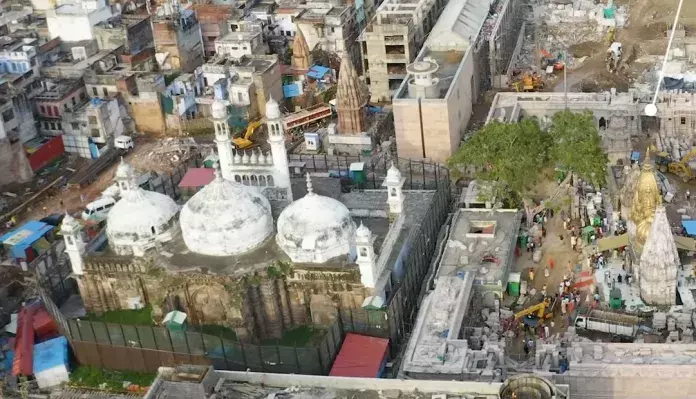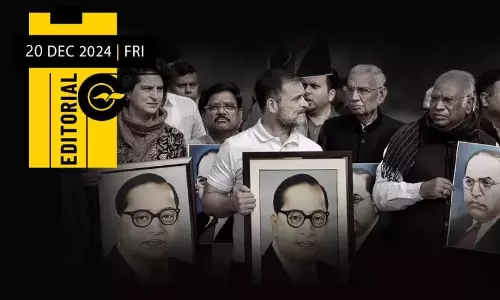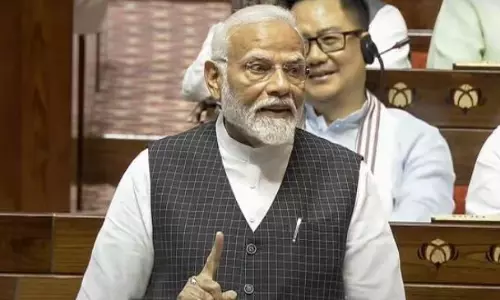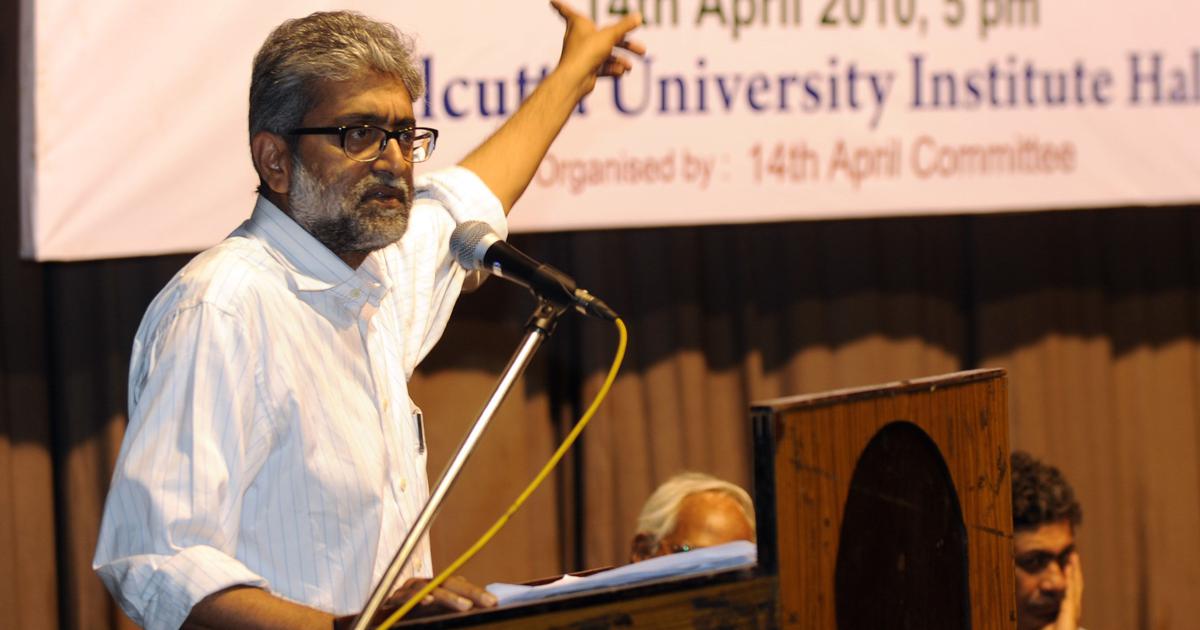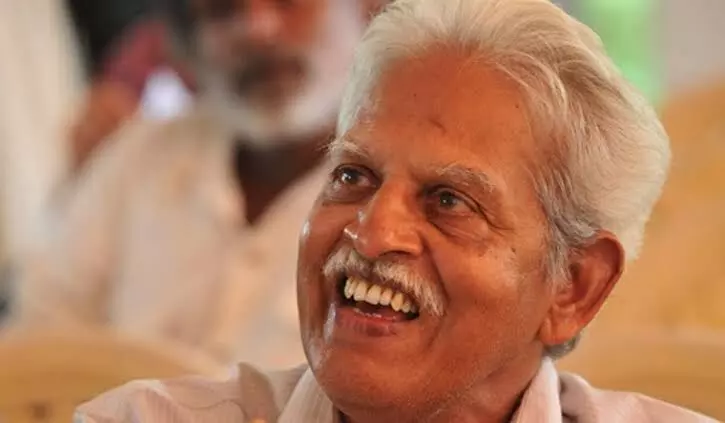
Seeking court's permission to use a mosquito net !
text_fieldsGautam Navlakha (file photo)
Most people will remember that two years ago, an elderly man had to approach the court to seek access to a straw to drink water in prison because he suffered from tremors. Fr Stan Swamy was in jail for leading legal battles for the rights of tribal communities. His punishment included the denial of the basic right to drinking water comfortably. He died without receiving adequate treatment amidst the criminal negligence of the investigating agency, prison authorities, and the court. Many of us had assumed that the tragedy that befell Stan Swamy would change the callousness of the authorities in the least. Many hoped that some wrongs will be rectified. But they were all wrong. Prominent human rights activist and journalist Gautam Navlakha is a trial prisoner in the same Elgar Parishad case in which Stan Swamy was accused and arrested. Two days ago, Navlakha approached a special NIA court for permission to use mosquito nets in the jail. The Taloja Jail in Navi Mumbai, where he is lodged, is plagued by mosquito-borne diseases such as dengue and malaria.
Trade unionist Vernon Gonsalves, a prisoner on trial in the same case, contracted dengue and became critically ill. He has been admitted to the Mumbai JJ hospital. Although jail authorities were notified of his symptoms in the beginning, they stopped his treatment with paracetamol tablets. The 65-year-old was moved to a government hospital only when his condition deteriorated. He is being kept alive by administering oxygen into his body using equipment, said his wife Adv. Susan Abraham. It is in this situation that a senior journalist has to plead before the court for permission to use a mosquito net. Earlier there was no restriction on mosquito nets. But then the prison authorities banned them citing that the strings and nails holding up the net in place posed a 'security threat'. Navlakha suffers from poor eyesight and lost his glasses due to theft two years ago while he was lodged in prison. As soon as the news reached his wife Saba Hussain, she sent new glasses to the jail. But the jail authorities refused to accept it and sent it back.
While considering the complaint in this regard, the Bombay High Court questioned whether such small things can be denied and observed that the first consideration should be humanitarian. The bench also suggested that a workshop be conducted to educate jail authorities on such matters. Whether the workshop was held or not, the stony heart of the prison authorities remains unchanged. Another accused in the case - Dr Hany Babu, a Keralite professor who worked at Delhi University - has also been suffering the same fate. Prison authorities have been grossly negligent in providing timely treatment. Human rights activists allege that the government is trying to eliminate these activists by keeping them in jail and not providing them with adequate treatment, because the fabricated charges against them will not hold water in court.
Another accused in this case is poet Prof Varavara Rao who remained in hospital in an unconscious state as a result of the inhuman treatment in jail. The Supreme Court granted him permanent bail on the grounds of health after several legal battles. Except for this, it has to be observed that even the court has not been doing much to prevent the dangerous game the government is playing. The issues faced by the accused in the Elgar Parishad case are reported and discussed, albeit minimally, in society because they are eminent activists and academics. In hundreds of other cases, the sufferings of the accused are not even known. Pandu Narote was a 33-year-old convicted in the UAPA case along with Delhi University teacher Prof. G.N. Saibaba. He died of swine flu in Nagpur Jail and it did not make headlines. Campus Front leader Atiq-ur-Rahman was arrested along with Malayali journalist Siddique Kappan while they were going to Hathras to report on the death of a Dalit rape victim. His relatives claim that he was denied post-operative care and had lost movement in his right arm and leg. As long as the judiciary does not intervene strongly and ensure that the directives are followed, many will continue to be victimised inch by inch in jails across the country. The court and the public should not forget that these people are in jail and enduring severe human rights violations because they questioned the human rights violations faced by those around them.




